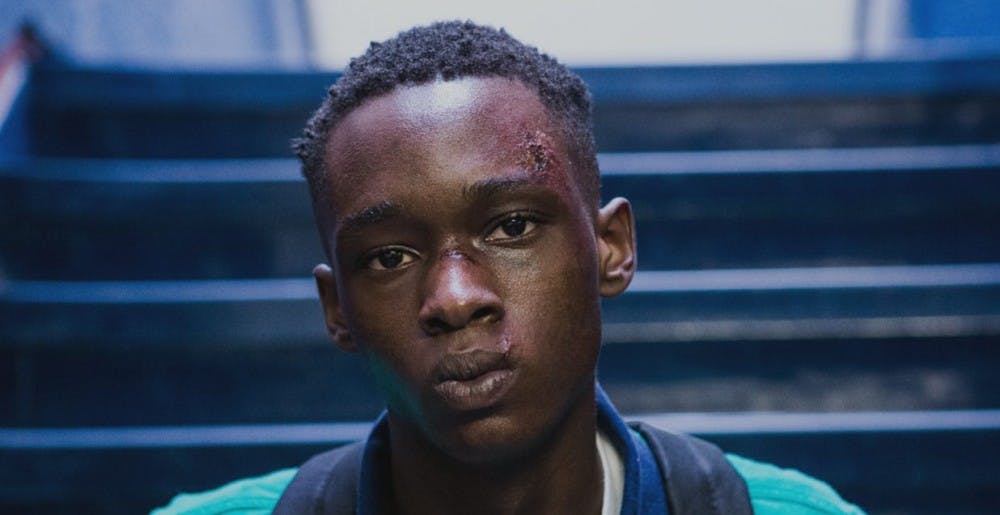"Moonlight" is not easy to watch.
Most Best Picture Winners aren't. "Moonlight" joined the illustrious ranks of films like "Schindler's List," "12 Years a Slave" and, most recently, "Spotlight" when it was bestowed the Academy Awards' top honor on Feb. 26.
It's definitely harder to watch than the film that was first and falsely announced as the recipient of Best Picture, thanks to a catastrophic envelope mixup backstage -- Damien Chazelle's seemingly inevitable "La La Land." But "Moonlight" unquestionably earned its title. While not always easy viewing, it's dazzling, devastating and most importantly, timely.
There's one scene I did find difficult in Chazelle's indulgent stunner, in which the romantic leads' relationship unravels over a candlelit dinner (ironically, the film's scene that, visually, most resembles "Moonlight"). But that's nothing compared to almost any scene in the latter, which tracks the life of a black boy, Chiron, growing up gay in the 1980s in a poor, drug-ravaged Miami community.
Both writer-director Barry Jenkins and Tarell Alvin McCraney, who penned the play the film is based on ("In Moonlight Black Boys Look Blue") grew up with drug-addicted mothers in Liberty City -- the neighborhood in which most filming took place. This packs an extra emotional punch, and following the #OscarsSoWhite firestorm that engulfed last year's ceremony, should serve as a reminder that films chronicling the plights of minorities are just as important as musicals and war dramas and rom-coms -- if not more so.
Racism, homophobia, drugs and poverty are hardly new issues to film. But in presenting them through Chiron's weary, guarded but inquisitive eyes, "Moonlight" refreshes and makes them feel incredibly relevant.
The film is disquieting in subject matter only, thanks to a deeply nuanced screenplay from Jenkins and an all-around indomitable cast; the three actors playing Chiron (Alex Hibbert, Ashton Sanders and Trevante Rhodes, respectively) all slip into the role seamlessly and with equally subdued angst. Naomie Harris delivers an intense, heartbreaking performance as his crack-addled mother, and Mahershala Ali (who took home the Best Actor Oscar for his role) is a measure in sturdy, stoic authority as Juan, Chiron's childhood father figure and neighborhood drug kingpin.
"Moonlight" is simultaneously gritty yet gorgeous, expertly playing with color schemes and lighting not to glamorize its subject matter but to accentuate it; kudos to cinematographer James Laxton, whose work earned an Oscar nod.
The film -- divided into three parts that chronicle Chiron's childhood, high school years and a chunk of his adult life -- offers unique and intimate windows into the most defining moments of his life for roughly 15 years, as he comes to terms with his surroundings and sexuality.
It's easy to be endeared by Chiron, whose childhood is a heartbreaking series of standoffs and revelations, of discoveries and disappointments, which continue into his teenage years.
"At some point, you gotta decide for yourself who you're going to be," Juan tells him at eight or nine years old. But don't Chiron's circumstances decide for him? His life is riddled with cruel irony, such as the fact that his mentor and father figure also provides his hapless mother with crack.
Many of the snapshots of Chiron's life that "Moonlight" provides are accompanied by a swelling piano score and crackle with fierce passion from everyone involved -- both of the positive and negative variety. The film grips you from its opening sequence and excels at keeping hold until the end, which will inevitably leave you at least a little unsettled, as it should.
Enjoy what you're reading?
Signup for our newsletter
At the risk of spoiling the ending, here's how the very last scene goes down: we're back in Little's era, and watch as Chiron stands soaked in moonlight on the beach, at the edge of the waves. He turns and stares directly into the camera, at the audience, perhaps imploring them to realize what the Academy did. It's 2017, and we can no longer ignore films like "Moonlight" or refuse to take anything away from them. Chiron's story is one that, though not marked by any universally known American tragedy, supernatural prophecy or anything particularly remarkable and popularized by modern cinema, is still one that deserves to be told.
(4/5 stars)




